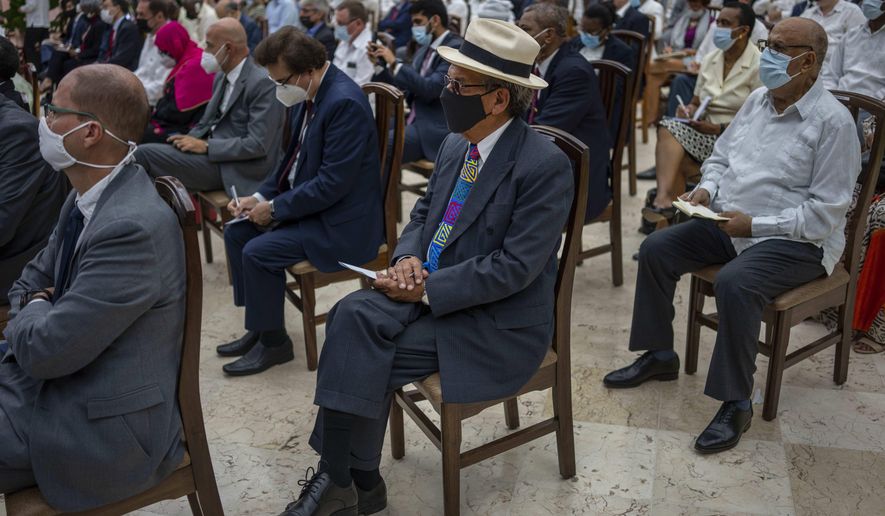HAVANA (AP) – The Cuban Foreign Ministry summoned hundreds of foreign diplomats to a meeting on Wednesday and accused the U.S. government of instigating a planned opposition demonstration that local authorities have banned.
The protest march scheduled for Monday will coincide with the reopening of the country after 20 months of lockdowns due to the coronavirus pandemic.
The socialist government is intent on preventing a repeat of the largest street protests in two decades that caught officials by surprise in July and which they also blamed partly on U.S. economic sanctions and foes based in the U.S.
“In no way will we allow the permanent aggression of the United States … to generate conditions of internal subversion … to spoil the party,” Foreign Relations Minister Bruno Rodríguez told the diplomats.
As of Monday, Cuba will drop most restrictions on commercial flights, school attendance, transportation, restaurants and shops. Daily COVID-19 cases have dropped dramatically in recent weeks thanks to a mass vaccination program.
The government also plans celebrations of Havana’s 502nd anniversary.
Rodríguez said the planned protest demonstration is an “operation” by the government and officials of the United States to do away with the Cuban system.
He said U.S. sanctions against Cuba seek to suffocate the island, generating social protests and creating the image of a “failed state”, regardless of “the suffering” caused to the population.
No U.S. diplomats attended the meeting. The U.S. Embassy has been open since 2015, but operations were sharply reduced during the administration of former U.S. President Donald Trump.
Monday’s march was announced by a largely online group called Archipelago, headed by playwright Yunior García Aguilera, who has denied financing or direction from outside Cuba. He said the march is meant to be peaceful and is to demand that authorities release people arrested on July 11 and 12 and grant more human rights.
Thousands of Cubans took to the streets in July, protesting power outages, shortages, high prices and long lines and denouncing the government. The government has not said how many were detained, but some human rights organizations said hundreds of people were either arrested or had gone missing after taking part.
The government temporarily cut off mobile internet service; many of the protesters apparently had learned of demonstrations over social media.
President Miguel Díaz-Canel initially responded by blaming U.S. economic sanctions, the economic impact of the coronavirus pandemic and a social media campaign by Cuban-American groups, though he later acknowledged some responsibility by Cuba’s leaders.




Please read our comment policy before commenting.